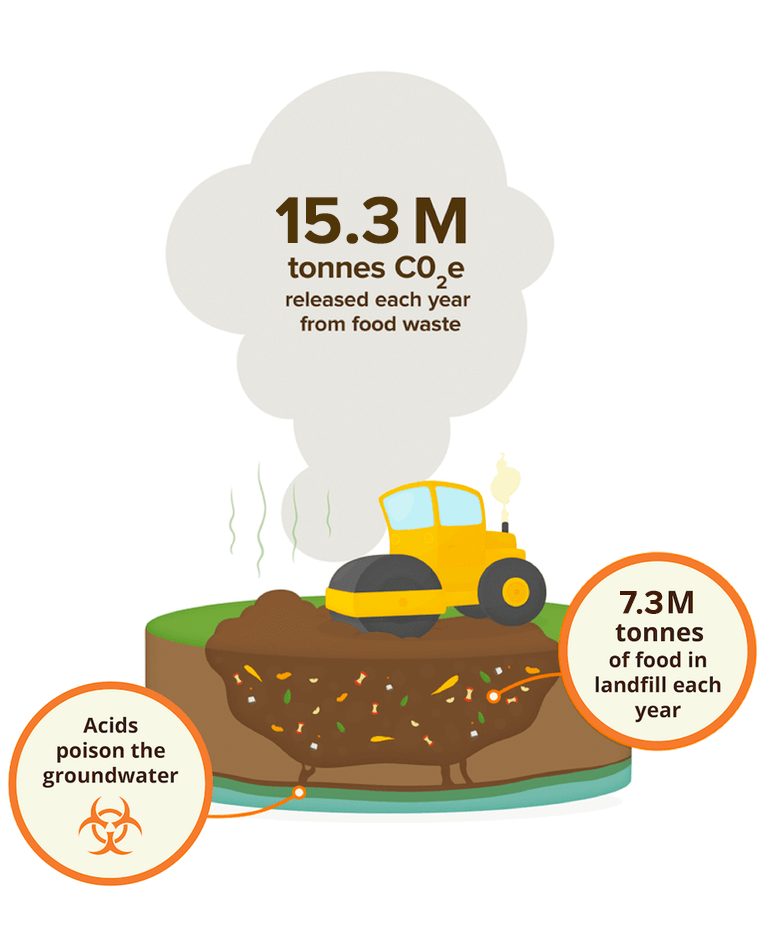What happens to organic material in landfill?

When food scraps and other organic materials are sent to landfill, they begin to rot anaerobically (without oxygen) and release greenhouse gases, primarily methane (CH4), which contributes to climate change. Many people don’t realise that the impact of methane on Climate Change is around 25 times greater than carbon dioxide (CO2).
Of course, transporting all of that heavy organic waste to landfill requires big trucks which spew pollution and add to its carbon footprint. To make matters worse, the rotting organic matter mixes with heavy metals and other chemicals from electronics in landfill and creates a toxic sludge that can sometimes eat its way through the clay lining of the landfill basin. Eventually, these underground toxins can make their way into the water supply.
While many modern landfills reduce these problems using methane gas flaring, waste to energy and ground water protection systems, there are also some that do not. Regardless, these solutions are fixing a problem we can avoid in the first place.
How big is the problem?
By composting your food scraps instead of sending them to landfill, households can significantly reduce their Climate Change footprint. In fact, about 3% of Australia’s total greenhouse gas emissions comes from organic matter rotting anaerobically (without air) in landfills. To put that in context, that is about as much as the entire country’s aviation industry.
The journey of food to our plate
Long before our food even gets to our plate, it has already had a long, resource-intensive journey. It takes a lot of water, fertiliser, energy, refrigeration, storage, packaging and transport fuel to grow your food and get it to the supermarket before your take it home. Composting your food waste is a good way of reducing the impact of landfill waste, but it’s also important to minimise food waste in the first place.
Visit the Love Food, Hate Waste website to learn how you can minimise the amount of food that becomes waste in the first place. You can also visit the Food Lovers Republic to learn how you can reduce food waste by planning your meals and creating shopping lists. If your council is participating, you will also be eligible for special offers!

